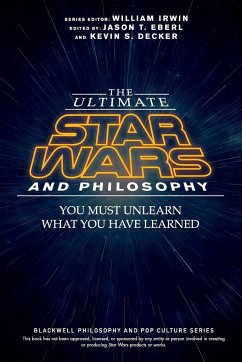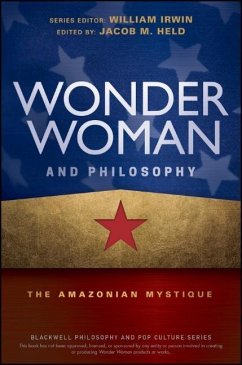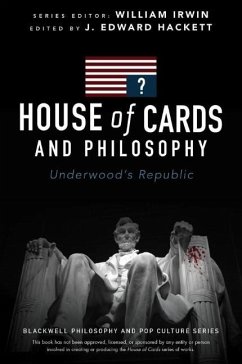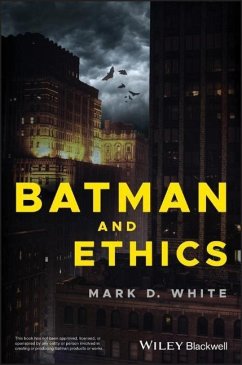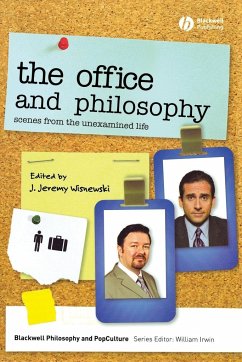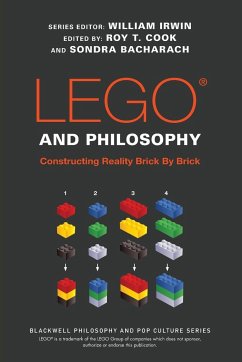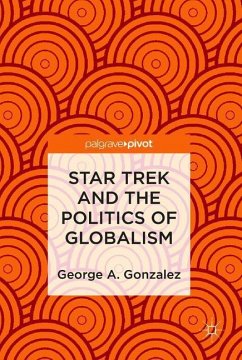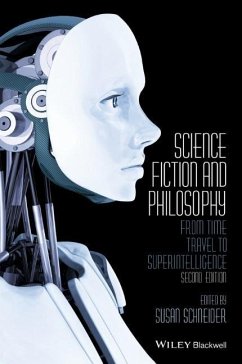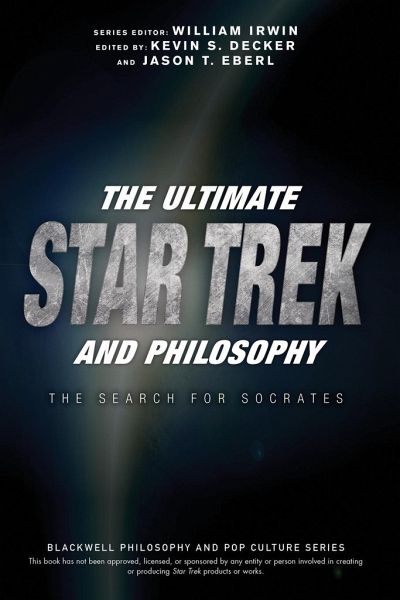
The Ultimate Star Trek and Philosophy
The Search for Socrates
Herausgegeben: Irwin, William; Decker, Kevin S.; Eberl, Jason T.
Versandkostenfrei!
Versandfertig in über 4 Wochen
14,99 €
inkl. MwSt.
Weitere Ausgaben:

PAYBACK Punkte
7 °P sammeln!
_ Reunites the editors of Star Trek and Philosophy with Starfleet's finest experts for 31 new, highly logical essays_ Features a complete examination of the Star Trek universe, from the original series to the most recent films directed by J.J. Abrams, Star Trek (2009) and Star Trek Into Darkness (2013)_ Introduces important concepts in philosophy through the vast array of provocative issues raised by the series, such as the ethics of the Prime Directive, Star Trek's philosophy of peace, Data and Voyager's Doctor as persons, moral relativism and the Federation's quest for liberation, the effect...
_ Reunites the editors of Star Trek and Philosophy with Starfleet's finest experts for 31 new, highly logical essays
_ Features a complete examination of the Star Trek universe, from the original series to the most recent films directed by J.J. Abrams, Star Trek (2009) and Star Trek Into Darkness (2013)
_ Introduces important concepts in philosophy through the vast array of provocative issues raised by the series, such as the ethics of the Prime Directive, Star Trek's philosophy of peace, Data and Voyager's Doctor as persons, moral relativism and the Federation's quest for liberation, the effect of alternate universes on reality and identity, the Borg as transhumanists, Federation Trekonomics, Star Trek's secular society, and much, much more...!
_ An enterprising and enlightening voyage into deep space that will appeal to hardcore fans and science fiction enthusiasts alike
_ Publishing in time to celebrate the 50th Anniversary of the original TV series
_ Features a complete examination of the Star Trek universe, from the original series to the most recent films directed by J.J. Abrams, Star Trek (2009) and Star Trek Into Darkness (2013)
_ Introduces important concepts in philosophy through the vast array of provocative issues raised by the series, such as the ethics of the Prime Directive, Star Trek's philosophy of peace, Data and Voyager's Doctor as persons, moral relativism and the Federation's quest for liberation, the effect of alternate universes on reality and identity, the Borg as transhumanists, Federation Trekonomics, Star Trek's secular society, and much, much more...!
_ An enterprising and enlightening voyage into deep space that will appeal to hardcore fans and science fiction enthusiasts alike
_ Publishing in time to celebrate the 50th Anniversary of the original TV series




